Selling A Probate Property
Selling a House in Probate: What You Need to Know
Dealing with the loss of a loved one is challenging enough without the added complexities of managing their estate. When that estate includes real property, navigating the probate process can feel overwhelming.
If you’re facing the prospect of selling a home in probate, understanding how probate will empower you to make informed decisions during this difficult time.
What Is Probate?
When someone passes away, their estate — which includes real estate, bank accounts, personal belongings, and other assets — typically goes through probate court, especially if they didn’t have estate planning tools like a living trust in place.
Probate includes a few key players, including:
- Executor (a/k/a Personal Representative): The person responsible for managing the estate.
- Beneficiaries or Heirs: Individuals who inherit the property or proceeds.
- Probate Court: Oversees the legal process to ensure everything is done correctly.
The probate process serves several important functions:
- Validating the deceased person’s will, if one exists
- Identifying and cataloging the deceased’s property
- Having property appraised
- Paying debts and taxes
- Distributing remaining assets to rightful heirs
For real estate specifically, probate ensures that the property transfers legally from the deceased to the appropriate beneficiaries or new owners.
Can You Sell a House During Probate?
Yes, but with certain conditions. Whether or not you can sell a home during probate depends on the local laws of the state where the property is located and how the Will was structured (if there is one).
In general, there are two common scenarios:
1. Will Allows the Sale
If the Will gives the executor power to sell the property, the process is relatively straightforward. The executor can list the home or sell it to a buyer, such as LPI Home Buyers, once the court approves the sale. If there is no Will, then the laws of the state where the property is located have to be reviewed to determine who has the power to act on behalf of the estate and what steps they need to take with the probate court to sell the property.
2. Court Approval Required
If the will doesn’t give the executor the power to sell or there is no Will, the executor or administrator typically needs approval from the probate court. This may involve:
- Getting the property appraised
- Notifying interested parties
- Attending a court hearing
- Allowing an overbid process (in some states)
Types of Probate Sales
When it comes to selling property in probate, there are generally three scenarios you may encounter:
Summary Probate Sale (shortened probate process)
With a summary probate administration, the probate process typically doesn’t take more than a few months. The sale of the property takes place once the probate process is complete. The heirs can often still go under contract with a buyer, but cannot finalize the sale until the probate is completed.
Formal Probate Sale
In a formal probate sale, the court maintains significant oversight of the selling process. This typically occurs when:
- The deceased didn’t leave a Will
- The Will doesn’t give the executor “full independent powers”
- The estate’s value exceeds certain thresholds (varies by state)
With formal probate administration, the court may have to approve the sale.
3. Independent Administration
If the deceased’s Will grants the executor “full independent powers” or if the court approves such powers, the executor can sell property with limited court supervision. This streamlined process allows for:
- Setting the listing price without court approval
- Accepting offers without court confirmation
- Generally faster transactions with fewer legal hurdles
Steps to Selling a House in Probate
Here’s an overview of how selling a house in probate works.
1Open Probate & Appoint an Executor
Before any property can be sold, you need to file the necessary paperwork with the probate court to begin the process. This includes presenting the Will (if one exists) and officially appointing an executor or administrator. An executor may not need to be appointed if the probate is eligible for a shortened (or summary) administration.
Key tasks in this stage:
- File a petition for probate with the local court
- Submit the original Will, if one exists
- Pay filing fees (typically $200-$500, varying by location)
- Attend a hearing where the judge formally appoints the executor/administrator
2Petition the Court to Sell the Property
If court approval is needed, the executor must file a petition that includes details about the sale, such as the offer amount and buyer information.
3Market the Property (or Sell Directly)
You can list the property on the open market or work with a home-buying company like LPI Home Buyers for a faster, hassle-free sale. The court may require a notice to be published or distributed to heirs.
4Finalize the Sale
Once the court approves the transaction (if required), the executor can close on the sale and distribute the proceeds according to the Will (or state law if there is no Will).
Challenges of Selling a Probate Property
Selling a home in probate isn’t always simple. Here are some common hurdles that you might run into:
Time Constraints
Probate sales typically take longer than standard transactions. This extended timeline can create challenges like:
- Carrying costs (mortgage, utilities, maintenance)
- Property deterioration
- Market fluctuations
Multiple Decision Makers
When multiple heirs are involved, disagreements about pricing, timing, and terms can complicate the process. Clear communication and sometimes mediation may be necessary.
Property Condition Issues
Many probate properties haven’t been updated in years and may have deferred maintenance issues that:
- Affect market value
- Limit buyer financing options
- Require disclosure to potential buyers
Court Requirements and Scheduling
Court calendars can be unpredictable, and required hearings may delay transactions. Additionally, each jurisdiction has specific procedures that must be followed precisely.
Tips for a Successful Probate Property Sale
1. Start Early
Begin preparing for the sale as soon as possible after being appointed executor, even while other probate matters are in progress.
2. Document Everything
Keep meticulous records of all:
- Property condition assessments
- Appraisals and valuations
- Communications with heirs, agents, and courts
- Expenses related to the property
3. Communicate Clearly with All Stakeholders
Regular updates to heirs, attorneys, agents, and other involved parties can prevent misunderstandings and conflicts.
4. Consider Professional Property Management
For distant properties or lengthy probate processes, hiring professional management can preserve property value and reduce executor burden.
5. Explore All Selling Options
Compare traditional listings, auctions, and direct sales to cash buyers like LPI Home Buyers to determine the most advantageous approach for your specific situation.
Why Sell to LPI Home Buyers?
Dealing with probate property presents unique challenges that traditional buyers and real estate transactions aren’t always equipped to handle. LPI Home Buyers specializes in providing solutions for executors and administrators managing probate properties nationwide.
Our services offer:
- Quick, as-is sales with no repairs or updates required
- Fast closing timelines that accommodate estate needs
- Cash offers eliminating financing contingencies and appraisal concerns
- Experience with probate documentation and court requirements
- Compassionate service during a difficult time
If you’re managing a probate property and exploring your options, contact LPI Home Buyers for a no-obligation offer. Our team understands the complexities of probate sales and can provide guidance tailored to your specific circumstances.
Frequently Asked Questions
What happens if there’s no Will?
If the deceased didn’t leave a Will, the court will appoint an administrator to manage the estate, and state intestacy laws will determine how assets are distributed. You can still sell the home, but court approval may be required.
Do I have to fix up the home before selling it?
No. With LPI Home Buyers, you can sell the home in “as-is” condition—no cleaning, no repairs, and no agents.
Can you help if the probate process hasn’t started yet?
Yes. We can connect you with local probate attorneys that we work with and help you understand what steps to take before selling the home.
Ready to Sell a Probate Property?
At LPI Home Buyers, we know the probate process can feel overwhelming, but you don’t have to go through it alone. Whether you’re ready to sell now or just exploring your options, we’re here to help.
Contact us on our website or call us at 1-855-706-5820 today for a no-obligation cash offer and expert guidance. Let us take the stress out of selling your probate property.

